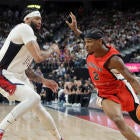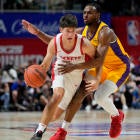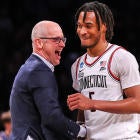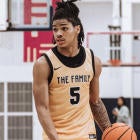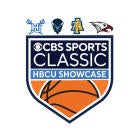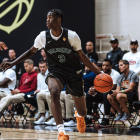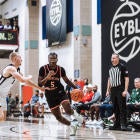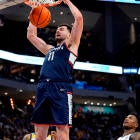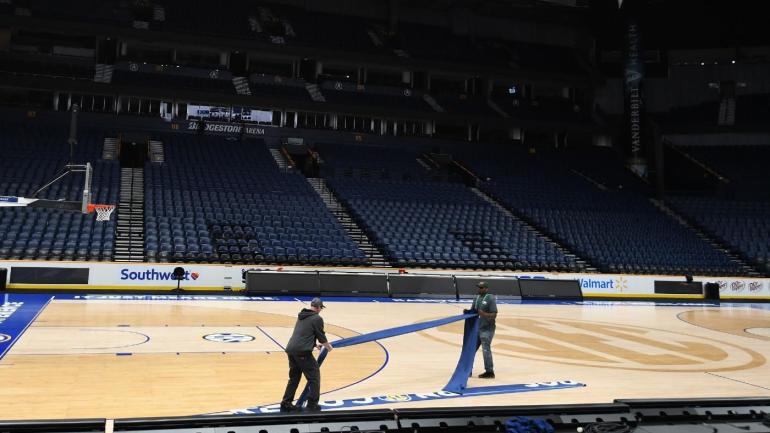
Out of 32 Division-I conferences in college basketball, 31 are playing this season. As of today, all of them plan to hold league tournaments.
But will they actually happen? Should they?
There are more than a few head coaches across the country who don't see conference bracket play as a necessary appendage in this season enveloped by COVID-19. CBS Sports surveyed 41 head coaches -- in conferences big and small, with records great, good and sub-par -- and asked: Should your league stage a conference tournament this season?
- Yes: 73%
- No: 27%
The alternative to no league tournament would mean the automatic bid would go to the regular-season champion. The NCAA on Tuesday revealed the schedule for the 2021 NCAA Tournament. Selection Sunday remains March 14, as has been planned for years. To this point no conference has decided to temporarily do away with its playoff, nor has any league pushed up its championship in an attempt to further separate the conclusion of league play with Selection Sunday.
The calendar and context are important, as the schedule could ultimately give way to NCAA Tournament vulnerabilities and/or opportunities surrendered. The NCAA is mandating all Tier 1 personnel on NCAA Tournament-selected teams return negative COVID-19 tests for seven consecutive days segueing to a team's departure for Indianapolis. Despite all planning and precautions by the NCAA -- which is not providing those tests to schools and leagues -- this is not foolproof.
With different formats, locations and timelines for many of these conference tournaments, both big and small, there's a chance March could get messy before it goes mad.
"If I was a mid-major, I'd be scared to death about the conference tournaments," one high-major coach said. "What do you do if a team wins a tournament but then they have five guys later test positive and can't go to the NCAAs?"
One person uniquely positioned to speak on this dilemma is South Carolina coach Frank Martin. I caught up with Martin over the phone last weekend as he was watching his team play on television, riding out quarantine amid his second bout with COVID-19. He's the only head coach in major American sports at this point believed to have contracted the coronavirus twice.
Martin is against playing an SEC Tournament this season.
"I've never understood conference tournaments," he said. "After beating the living you-know-what out of each other for two and a half months? I get why it's done. Money. I wouldn't be against taking a deep breath this year and saying, 'You know what, let's utilize that time to try and make up games for the ones we missed and let's just crown a regular-season champion."
Catch up with the latest news in college hoops and subscribe to Eye on College Basketball.
Martin said he has regrets about not being more typically outspoken last fall, when there was still time to lobby for certain changes in the sport.
"I think the biggest mistake we've made is we're trying to have a normal basketball season in an abnormal year," he said. "We should have never just had regular home-and-homes and travel to play single games. We should have never done any of that stuff. I'm sure television and TV contracts and whatever other stuff had a lot to do with that, but I think we across the board -- and I'm including myself because I could have been a lot more outspoken about this. I sit on the board of the NABC, I'm involved in all kinds of meetings and I was too passive because of so much being unknown. It's easy to reflect, but now that we're in it, it's my opinion that trying to play a normal season just doesn't make sense."
Colorado State coach Niko Medved shares Martin's point of view.
"I think we need to be nimble and don't think we need to be locked in and saying we have to have these conference tournaments right now," Medved said. "We have to be agile, and we struggle with that. We're not into February, and I don't think it necessarily makes sense for every league to do."
Medved could just as easily have the opinion of the 73% majority, most of whom, like him, are coaching teams far from a sure thing to dance this year. But Medved is trying to see well beyond a few extra bonus games in the second week of March.
"We might be one of those teams that it would benefit us to play a conference tournament," he said. "I would say it doesn't make a lot of sense to have all these teams traveling again, risking it, going to a neutral site to play a conference tournament."
Teams could wind up not playing in their conference tournaments for two reasons. The first is obvious and unintentional: COVID-19 positives prompt a pause. This possibility is precisely why some coaches are against league tournaments. The very threat of being put on pause could eliminate them from NCAA Tournament participation. Is the reward worth that risk?
"In every league I think you need to ascertain where exactly your teams are in regard to qualifying for at-larges and what really is to be gained from the league tournament," Gonzaga coach Mark Few told CBS Sports. "The leagues make money off them because of attendance, and there's certainly not going to be full attendance this year -- most of them aren't going to have anybody. So then it becomes, if there's no money to be made, then we need to look at: can we qualify? So-and-so needs a win. In our league, 'Does Saint Mary's need two more Quad 1 wins to clinch their at-large bid?'"
The second option opens Pandora's box: teams safely projected into the NCAAs opt out of playing in league tournaments. If that were to happen, what recourse could a conference have? One source familiar with television contracts said if it's a program's decision -- with the push from a coaching staff and/or athletic department -- a conference would have the power to revoke league-tournament payments, essentially eliminating that school's share. Amid a pandemic that's wrecked athletic department budgets, that's a significant action. To get a sense of how much of a financial penalty it could be, the source added this postulation: the American Athletic Conference makes somewhere around $300,000 off its league championship in a normal year, while the Pac-12 would be around $750,000 and the Big Ten, Big 12 and ACC vault north of $1 million.
But what if it's not the coaches' decision? What if unpaid amateur athletes on a surefire NCAA Tournament team decide they don't want to put their bodies and health at risk for a less-heralded event and instead choose to sit out a league tournament to better ensure they can play in the tournament that matters (which promises to be much more rigorous in its COVID protocols)? No league could force the players to play, and financially punishing a school under these conditions would be a PR disaster.
"You could even ask in the Big Ten: What's the point?" Few said. "If you have a bye in the Big Ten tournament you're probably in."
Ohio State coach Chris Holtmann endorses playing. He, like the majority of coaches polled, believe their players would prefer to play as many games as possible this season.
"This has been player-driven for us," he said. "If it continues to be player-driven, then I think at the end of the day players are going to want to play every possible game they can play."
The potential trouble lies in that 19 of the 31 conference tournaments lined up for this March are contracted through TV to finish in a 30-hour window right before the bracket is revealed. Butting up against Selection Sunday, travel, teams being exposed to different environments -- and other teams -- could prompt multiple regrettable scenarios in which schools that make it into the field of 68 eventually pop positive after arriving in Indianapolis and wind up not being able to play on the sport's biggest stage.
"I do think there's a risk there," Holtmann said. "Could I see us collectively, the coaches in general, 'Hey, let's just skip it'? I could see that as a possibility."
Gonzaga also makes for an easy hypothetical. If it ends the regular season undefeated, what motivation does it have to play in the WCC championship? Then there's this ramification: If GU opted out but no other WCC team did, that would ethically bring up the issue of bid collusion, just as it would if four projected locks in a multi-bid league all did the same. Whatever the reason might be for good teams potentially choosing not to play in league tournaments, this quandary is on the minds of plenty of coaches -- and the NCAA Tournament selection committee.
"We have discussed it briefly and are aware," NCAA senior vice president of basketball Dan Gavitt told CBS Sports. "But that's as far as I can go to answer at this point. There will be some communication probably made at some point to leagues about just what to do with that situation."
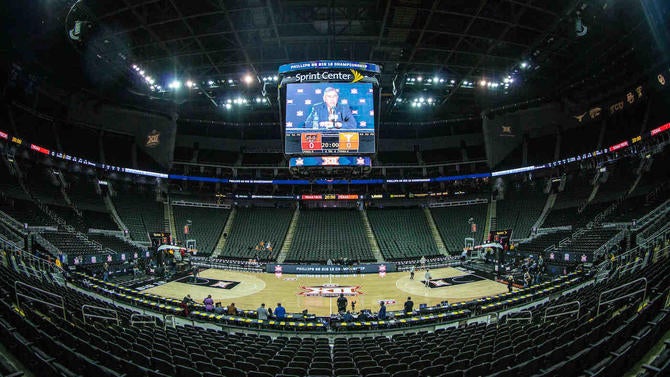
When pressed a bit further, Gavitt added: "There's local decision-making that has to happen with conference tournaments, but the committee will have to assess what the impact of that is or isn't on the tournament, and then decide what to do about it. There's multiple layers to it. There's a school decision. There's a conference decision, because conferences have obligations through media contracts and venue agreements. So how does a conference deal with that? And then potentially, and I just say potentially because I don't know, there could be a tournament committee factor in all that. Maybe, maybe not. We'll see, but yes, it's on the radar."
Regarding Gonzaga, Few also noted the most important factor, beyond the experience for coaches and players to be involved in the NCAA Tournament, are the units that get paid to conferences for appearing in and winning games in the Big Dance.
"Hopefully we could all get together, coaches and admins, and make the best call for our league," Few said. "Is the best thing to shut it down so Gonzaga can bubble up before we head to Indy, or is the best call to see if we can get several other teams qualified through our tournament? I think we have to wait and see. I don't know if that can't be answered right now."
Atlantic 10 commissioner Bernadette McGlade said her league has had zero debate on this issue. McGlade broached this topic in the fall to get a reading from A-10 athletic directors. All were vocal about keeping the league tournament and making all teams eligible.
"Why have it? Maybe the flip side for me is the year's been so tumultuous," McGlade said. "The conference championship is meaningful to the teams. For a good percentage of teams it will be their only postseason experience. That's what we pride ourselves on: running a big-time championship."
Championship formats have changed for some this season. The NEC, in a controversial move, reduced its tournament to the top four teams. One mid-major coach brought up how his league could see its best team this season wind up as the No. 5 or No. 6 seed in their league because of fewer games played and the schedule stalls preventing it from rising in the standings due to multiple pauses. In that instance the league tournament can serve as the resolution and give that team as fair a shot as possible to make the NCAAs. For example: Weber State's Randy Rahe said he really wants a league tournament. His team's only managed two league games so far. And for mid-major teams, the league tournament essentially is the NCAA Tournament.
Ultimately, of course this comes down to the money. Here are the words of two coaches in two different parts of the country, one is in a power conference, the other in one of the lowest-rated leagues in college hoops.
Power-conference coach said: "I think we make too much money in our conference tournament not to do it. That's why I don't think we would have a choice because for the good of the league and the money it generates."
The small-conference coach said: "It's just, 'Get the money and get on to next year.' That's the sad truth."
While the majority of coaches do support keeping on schedule, many of the ones who were against it are coaching in multi-bid leagues with teams currently projected to make the NCAA Tournament. That suggests this issue could become more prominent in the next few weeks.









